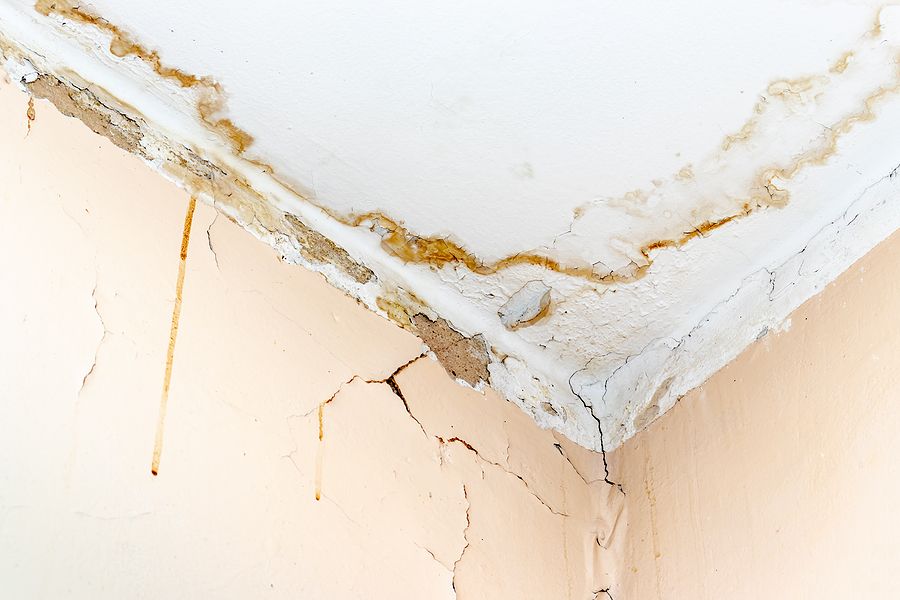Learn About Main Origins Contributing To Water Leakage Within Your Residence
Learn About Main Origins Contributing To Water Leakage Within Your Residence
Blog Article
Just how do you really feel about How Fast Water Damage Can Ruin Your Home?

Leaks not only cause waste of water but can also cause unnecessary damage to your residence and promote unwanted organic growth. By recognizing and looking for everyday situations that cause leaks, you can secure your house from future leakages and unnecessary damages.
Immediate temperature changes.
Severe temperature level modifications in our pipes can cause them to increase and acquire all of a sudden. This expansion and contraction might trigger fractures in the pipes, especially if the temperature level are below freezing.
Rusty water systems
As time passes by, your plumbing system ages as well as corrosion such as corrosion might start gnawing the pipes. This could be the root cause of discoloration or warping on your pipes. This requires an inspection with your plumber instantly. If our plumbing system is old, take into consideration replacing the pipes given that they are at a higher danger of deterioration than the newer models.
Faulty Pipeline Joints
The point at which your pipes link is often the weakest link in the waterline. Pipe joints can weaken gradually, leading to water leakages. The bulk of pipe joints are not quickly noticeable. If you have noisy pipelines that make ticking or banging sounds, especially when the warm water is activated, your pipe joints are most likely under a great deal of pressure. It is a good idea to have your plumber evaluate your system once a year.
Trespassing roots
Many water leakages start outside the house instead than inside it. You might observe wet spots or sinkholes in your yard, and also that may suggest that tree roots are attacking water lines causing water to leak out.
Poor Water Connectors
At times, a leakage can be triggered by loose tubes and also pipes that supply your home appliances. Usually, shifting is what causes the loose water Connections. You might discover in the case of a cleaning equipment, a pipe might spring a leak because of trembling during the spin cycle. In case of a water connections leak, you may notice water running straight from the supply line or pools around your home appliances.
Clogged Drains
Clogged drains pipes may be irritating and also inconveniencing, but they can often end up triggering an overflow resulting in break pipelines. Keep removing any materials that might drop your drains that might block them to prevent such aggravations.
All the above are reasons for leaks but not all water leaks arise from plumbing leaks; some leakages may originate from roofing system leaks. All leaks must be repaired right away to stay clear of water damage.
Leaks not just trigger waste of water yet can also create unnecessary damage to your residence and also promote unwanted natural growth. By understanding as well as looking for day-to-day scenarios that cause leakages, you can safeguard your house from future leaks as well as unnecessary damage. Today, we will certainly look at 6 leakage triggers that might be triggering your pipelines to leak.
At times, a leakage can be caused by loose hose pipes and also pipes that provide your appliances. In case of a water connections leakage, you may discover water running straight from the supply line or pools around your home appliances.
How To Check For Water Leak In Your Home
How To Check for Leaks
The average household's leaks can account for nearly 10,000 gallons of water wasted every year and ten percent of homes have leaks that waste 90 gallons or more per day. Common types of leaks found in the home are worn toilet flappers, dripping faucets, and other leaking valves. These types of leaks are often easy to fix, requiring only a few tools and hardware that can pay for themselves in water savings. Fixing easily corrected household water leaks can save homeowners about 10 percent on their water bills.
To check for leaks in your home, you first need to determine whether you're wasting water and then identify the source of the leak. Here are some tips for finding leaks:
Take a look at your water usage during a colder month, such as January or February. If a family of four exceeds 12,000 gallons per month, there are serious leaks.
Check your water meter before and after a two-hour period when no water is being used. If the meter changes at all, you probably have a leak.
Identify toilet leaks by placing a drop of food coloring in the toilet tank. If any color shows up in the bowl after 10 minutes, you have a leak. (Be sure to flush immediately after the experiment to avoid staining the tank.)
Examine faucet gaskets and pipe fittings for any water on the outside of the pipe to check for surface leaks.
Undetected water leaks can happen without the home or business owner even realizing. If you suspect a water leak, but not able to find the source. It is time to contact a professional water leak detection service, The Leak Doctor.
How To Find a Water Leak In Your Home
https://www.leakdoctor.com/blog/How-To-Check-For-Water-Leak-In-Your-Home_AE197.html

Do you really like reading about How to detect water leaks in your home? Place feedback below. We'd be delighted to know your thinking about this page. Hoping to see you back again before long. Be sure to take the opportunity to promote this article if you appreciated it. We take joy in reading our article about How to Find Water Leaks.
Estimate Report this page